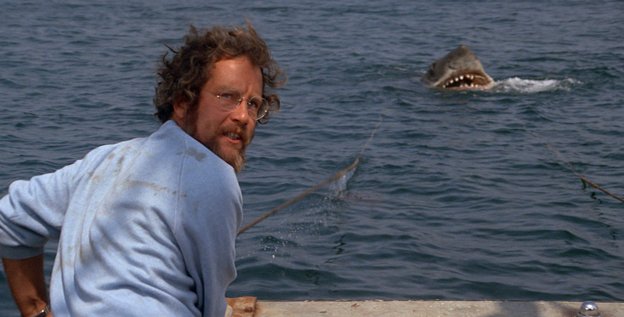"Reef": The real-life marine scientist who inspired 'JAWS' shark expert
In 1975, "Jaws" revolutionized several aspects: it birthed the concept of the modern summer blockbuster, instilled a widespread fear of the ocean in millions, and significantly damaged the public image of the great white shark.
One individual who harbored reservations about the impact of "Jaws" on shark perception was Dr. Donald “Reef” Nelson, who served as a science advisor for both the original film and its 1978 sequel. He even inspired the character of Matt Hooper, the oceanographer portrayed by Richard Dreyfuss. Nelson's concern stemmed from his initial encounter with a shark in 1959, a time when scientific understanding of shark behavior was rudimentary at best. Driven by curiosity, Nelson, along with his research partner Samuel “Sonny” Gruber, embarked on a groundbreaking investigation into whether sharks were attracted to sound. Their experiments, involving the playback of simulated distressed fish sounds underwater, yielded remarkable results, attracting 22 sharks and shedding light on previously unexplored aspects of shark behavior. Their findings, published in Science in 1963, marked a significant milestone in shark research.
Prior to Nelson's work, incidents involving shark attacks on the U.S. Navy prompted considerable concern. Nelson's research, however, provided valuable insights that could potentially prevent such attacks in the future. His studies revealed that sounds resembling those of distressed fish could inadvertently provoke sharks, posing a risk to swimmers. This discovery led Nelson to explore methods of shark repellent, albeit with limited success. Nonetheless, his pursuit of understanding sharks led him to engage in daring encounters, such as free-diving to observe reef sharks' defensive behaviors.
In the early 1970s, a young Steven Spielberg visited Nelson's Shark Lab at Cal State, where he drew inspiration for scenes and settings in "Jaws." Despite his involvement with Hollywood, Nelson remained committed to scientific inquiry, retiring his risky diving technique only after a narrow escape from a particularly aggressive shark. He continued his research using innovative tools like the Shark Observation Submersible (SOS), pioneering techniques for tracking sharks in their natural habitat.
Nelson with the SOS II Shark Observation Submersible circa 1978. / Courtesy of the Shark Lab / Cal State Long Beach
Through his tireless efforts, Nelson expanded humanity's understanding of sharks, dispelling misconceptions perpetuated by films like "Jaws." Despite initial fears stoked by the movie, both Spielberg and Peter Benchley, its co-screenwriter, expressed regret over its portrayal of sharks and the subsequent backlash against the creatures. Nelson's legacy includes over 20 documentaries and nearly 50 scientific papers, shaping generations of marine biologists and fostering a deeper appreciation for these enigmatic creatures.
If you would like to write for The Daily Jaws, please visit our ‘work with us’ page
For all the latest Jaws, shark and shark movie news, follow The Daily Jaws on Instagram, Twitter and Facebook.



